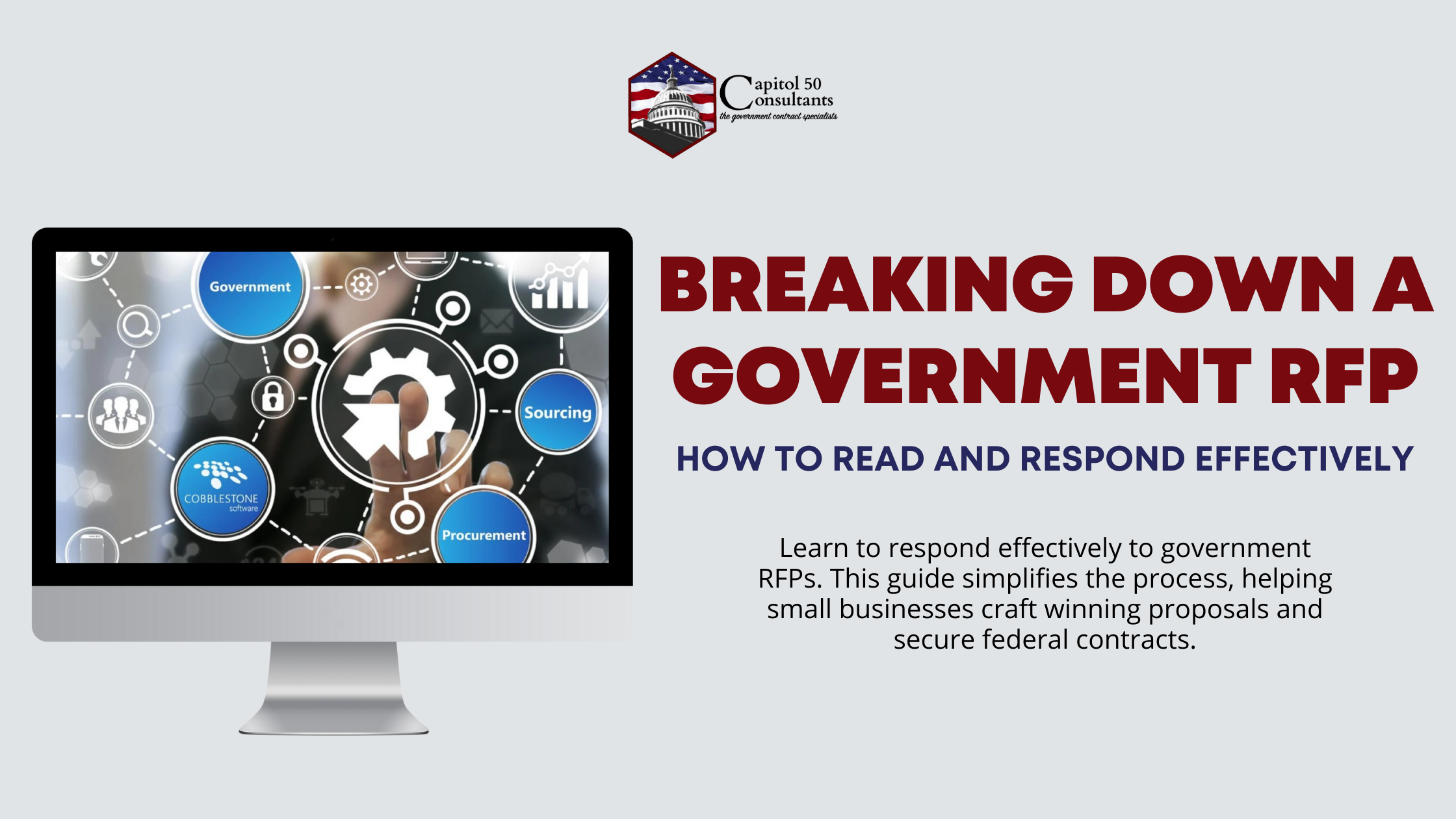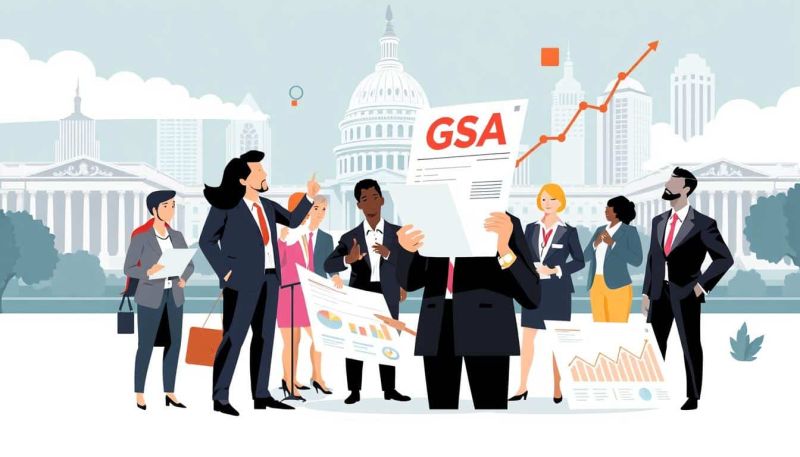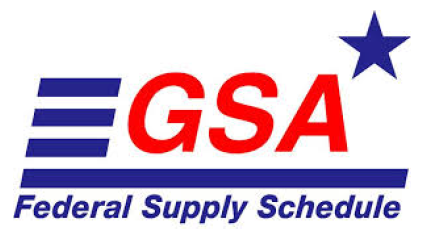Navigating a government Request for Proposal (RFP) can be intimidating, but it’s a crucial step for winning federal contracts. Understanding how to break down an RFP and respond strategically can give your business a competitive edge. Whether you’re new to federal procurement or looking to refine your approach, this guide will help you master RFPs with confidence.
What Is a Government RFP?
Definition and Purpose
A Request for Proposal (RFP) is a formal document issued by government agencies inviting businesses to submit proposals for specific projects or services. It outlines requirements, expectations, and evaluation criteria.
Key Sections of an RFP
- Statement of Work (SOW): Details the project scope and objectives.
- Submission Requirements: Specifies format, deadlines, and necessary documentation.
- Evaluation Criteria: Explains how proposals will be assessed.
Why Government RFPs Matter for Small Businesses
Opportunities for Growth
Securing government contracts can provide consistent revenue streams and open doors to larger projects.
Leveling the Playing Field
Small businesses benefit from set-aside contracts and initiatives designed to promote fair competition.
Building Credibility
Winning an RFP establishes your business as a trusted government partner, enhancing your reputation in the market.
How to Read a Government RFP
Step 1: Understand the Scope of Work (SOW)
Carefully review the SOW to determine if your business’s capabilities align with the project requirements.
Step 2: Identify Submission Requirements
Take note of critical details such as deadlines, formatting guidelines, and required certifications or documents.
Step 3: Evaluate the Evaluation Criteria
Understand how your proposal will be scored. Focus on sections with higher weightage to maximize your chances of success.
Common Challenges in Responding to RFPs
Interpreting Complex Requirements
Government RFPs often contain technical language and detailed specifications that can be difficult to understand.
Tight Deadlines
Preparing a compelling proposal within the specified timeframe can be challenging, especially for small teams.
Resource Constraints
Limited resources may hinder small businesses from crafting competitive proposals or conducting necessary research.
Tips for Crafting a Winning RFP Response
Tailor Your Proposal
Customize your response to address the specific needs outlined in the RFP. Highlight your unique value and expertise.
Focus on Compliance
Ensure your proposal adheres to all submission requirements and includes necessary certifications.
Leverage Past Performance
Include examples of previous successful projects that demonstrate your capabilities and reliability.
The Role of Technology in RFP Responses
Proposal Automation Tools
Use software to streamline proposal writing, ensure compliance, and meet deadlines efficiently.
Market Research Platforms
Leverage tools like SAM.gov to gather insights on upcoming RFPs and industry trends.
Recent Trends in Government RFPs
Increased Focus on Cybersecurity
Agencies are prioritizing vendors who demonstrate robust cybersecurity measures in their proposals.
Sustainability Initiatives
RFPs increasingly emphasize green practices and environmentally friendly solutions.
FAQs About Government RFPs
- How do I find government RFPs? Platforms like SAM.gov and GovWin are excellent resources for discovering federal opportunities.
- What documents are typically required in an RFP response? Common requirements include a technical proposal, pricing details, past performance examples, and certifications.
- How can small businesses compete with larger firms on RFPs? Focus on niche expertise, set-aside opportunities, and building strong relationships with agencies.
- What are the most common mistakes in RFP responses? Errors include missing deadlines, non-compliance with requirements, and failing to address evaluation criteria.
- Can I get help with RFP responses? Yes, consultants and proposal experts can provide valuable guidance and resources.
Book a Free Consultation to Improve Your RFP Responses? Let’s get in touch!
A free consultation can help you:
- Decode complex RFP requirements
- Develop strategies to craft compelling and compliant proposals
- Gain insights into maximizing your chances of winning federal contracts
Don’t let opportunities slip away. Book your free consultation today and master the RFP process with confidence.
Breaking down and responding to government RFPs effectively is a skill that can transform your federal procurement success. With the right approach and resources, your small business can compete and thrive in the government contracting space. Take the first step today by booking a free consultation to refine your RFP strategy and unlock new opportunities.




